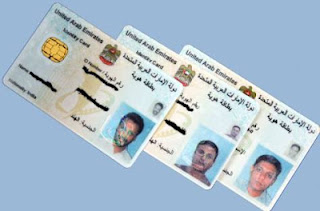Dubai: Private companies are demanding a police-issued clean criminal record from job applicants in the UAE.
Those failing to produce police clearance or with a bad standing at previous jobs or colleges are weeded out by HR managers and job agents even if they are otherwise deemed ‘job-worthy'.
Employers and recruitment agencies told XPRESS on the sidelines of the Careers UAE job fair in Dubai this week that job seekers face closer scrutiny nowadays.
It is not clear why more companies are going to greater lengths to investigate applicants, but headhunters said the credit crunch had seen a rise in dodgy candidates "desperate to get their foot in the door".
Others said the procedures are "best practices" at big firms which smaller companies want to copy. Ammar Shehada, business development manager at recruitment firm Ershaad.ae, said: "The majority of employers are asking for police background checks, work references, academic documents or professional certificates after shortlisting potential candidates. Recruitment agencies must ensure they are forwarding the right candidates to employers by ensuring that whatever is mentioned in the CV is true, as we recruit human beings and not a piece of paper. Otherwise it's all a waste of time, effort, money and reputation."
Mohammad Al Suweidi, managing partner of Dubai law firm Al Suweidi and Co, said the government requires employees to get police clearance. "This requirement of a police certificate of good conduct makes sense for the private sector because it safeguards the interests of employers. As an employer, it's my right to know that the person I am hiring has no criminal record. It's good practice. You wouldn't want an embezzler to handle your accounts."
Besides producing original education and employment history documents attested by officials, a police Certificate of Good Conduct is demanded by many private firms. They also make calls to former line managers and even past school teachers to see if the applicant had behaviour or attitude issues.
Referrals by prior bosses or education providers are cross-checked and validated, but more sensitive information is shared over the phone, a long-serving HR manager at one of the UAE's biggest conglomerates said.
"If there was a minor problem in the past, I really don't care. If it was serious, it'll get flagged up in the police or immigration checks," he said on condition of anonymity.
"With former line managers, they don't like to put things down in writing for legal reasons — the applicant could file a case, ‘why did you say these bad things about me?' So I call them up and we verbally discuss everything — why the candidate left or was terminated. There was someone we wanted to hire for a senior position where everything was looking good. But because of bad feedback, we didn't go ahead."
A manager of a leading job agency said on condition of anonymity: "You need to know what's the candidate's background, they could be a threat to the company.
"After the recession, there were many non-genuine applicants who wanted to hurt employers financially. There were fraudsters, fake referrals and fake documents. They were desperate to get their foot in the door.
"There is a real concern, and the demand for police certificates is on the rise. What you say about yourself should not contradict what the police say. But it's also happening because medium companies want to follow big companies' best [recruitment] practices. This is a sweeping trend, which is starting to take off across the board."
Another recruitment firm, JustJobs.ae, believes many applicants are becoming aware of the police background checks.
"They know about this; it's part of getting hired in so many companies and government departments. And why should they be offended or worried if they have nothing to hide?" said senior recruitment specialist Sami Al Zubaidi.
No immediate comment was available from Dubai Police.












.jpg)




















